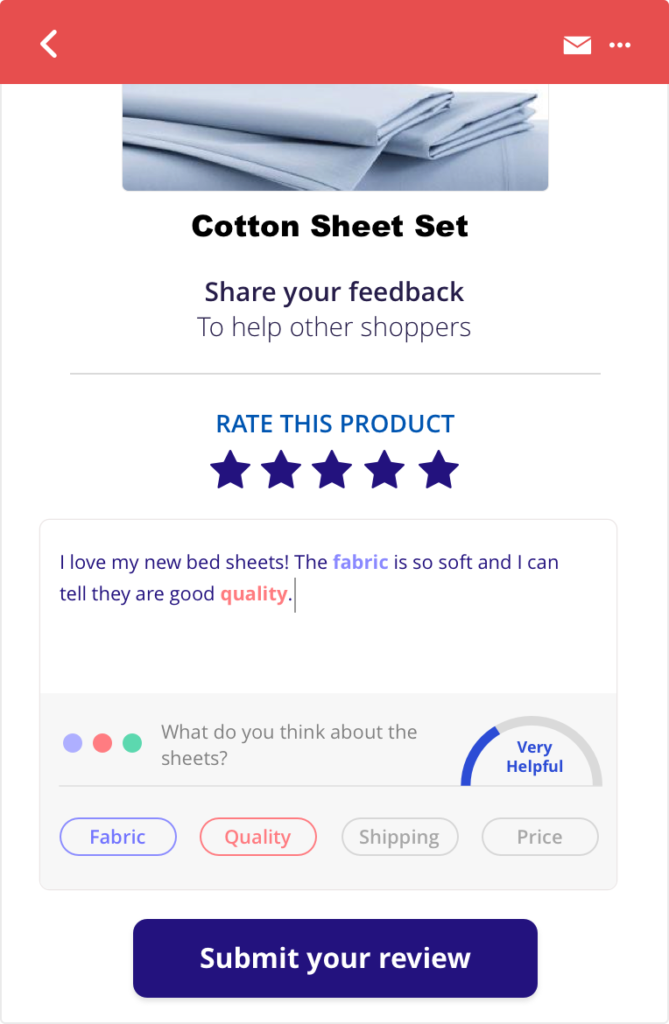More reviews = more sales.
While getting more reviews is great, if these reviews don’t answer shoppers’ questions, they’re not maximizing their conversion-boosting potential.
So does that mean longer reviews are more valuable? Not necessarily. Length isn’t always a good indicator of a review’s helpfulness.
A long review that doesn’t address concerns about size or comfort, for example, can be less valuable than it’s shorter, more descriptive counterpart.
The most effective customer reviews speak about the topics shoppers are looking for information about. But how can brands get these reviews?
Think about the typical review request: After buying a new set of sheets, a customer may receive an email asking, “What do you think of your sheets?”
But requests like this are often too generic to elicit substantial and helpful responses. So brands can try another angle, asking a specific question, like, “How is the quality of your sheets?”
However, even this method has its limits: A customer who had an awesome shipping experience may not think to write about it, because they were focused on a question about quality. In this case, the brand misses out on a valuable opportunity to get positive feedback on their great shipping.
In order to be truly effective, requests have to ask about topics that matter to consumers.

In initial tests, the AI-powered prompts resulted in a 61% uplift in the prevalence of suggested topics in customer reviews.
Plus, customer preferences are constantly changing. Using machine learning, requests can be adjusted in real time.
These real-time prompts encourage customers to go beyond the standard responses and give more detailed, helpful reviews.
Smart requests are the future of content generation, especially as eCommerce continues to grow and shoppers’ needs become increasingly specific.













 Join a free demo, personalized to fit your needs
Join a free demo, personalized to fit your needs